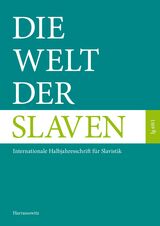Autor: Станислав Савицкий (Stanislav Savickij)
- «
- 1
- »
Die Suche erzielte 6 Treffer.
Панмонголизм и игра слов. К постановке проблемы смеха в творчестве Владимира Соловьева article
О происхождении русской философии из духа номадизма. Книга В. Эрна о Г. Сковороде и скифская мифология русского модернизма article
Союз и соперничество искусства, науки и философии в России XVIII–XX вв. article
«Золотая лень»: о типологии прогулки как художественной практики в СССР 1960-80-х гг. article
Свободное время и труд в русской художественной культуре XVIII–XXI вв. article
- «
- 1
- »
